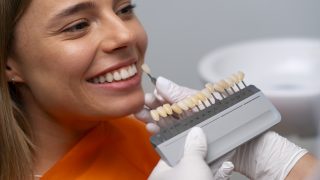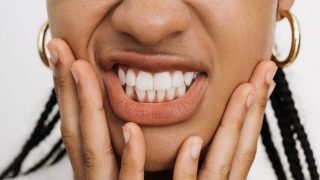The use of laser dentistry is becoming increasingly common today and offers some important advantages. Laser dentistry treatment is superior to traditional methods in many aspects. First of all, a less invasive approach is taken when applying laser treatment. This reduces the risk of patients damaging the soft tissues around the tooth and therefore speeds up the healing process. Additionally, thanks to the precise focusing ability of the laser, it focuses on the treated area, ensuring effective treatment of affected tissues while preserving healthy tissues. This leads to more accurate and effective treatment results.
However, another important advantage of laser dentistry is less bleeding and pain. The cutting and coagulation properties of laser technology allow blood vessels to be closed quickly and prevent bleeding during treatment. This means less blood loss during treatment and allows patients to feel less pain and discomfort after treatment. Additionally, thanks to the antibacterial properties of laser dentistry, the risk of infection in the treated area is also reduced, ensuring the longer-term success of the treatment. As a result, laser treatment offers a safer, more precise, and more comfortable treatment experience and represents a significant advancement in the field of dentistry.
Uses of Laser Treatment in Dentistry
Laser treatment is a modern technology that is increasingly popular in today’s dentistry. It offers an effective alternative in the treatment of various dental health problems and provides many advantages over traditional methods. This article provides a more detailed look at the important areas of use and advantages of laser dentistry.
- Conditions such as gum diseases, gingivitis and periodontitis are among the areas where laser treatment comes to the fore. The laser effectively destroys bacteria in the infected area and reduces inflammation. This method is used to stop the progression of the disease and improve gum health.
- Laser-assisted teeth whitening procedures are very effective in restoring the natural color of teeth or removing stains. The laser creates an accelerating effect on the whitening gel, meaning faster and more effective results. Compared to traditional whitening methods, laser treatments offer more visible results in a shorter time.
- The use of laser in the treatment of tooth decay plays an important role in cleaning the decayed tissue and preparing the tooth before filling it with filling material. This method is less painful and less invasive than using a traditional drill, meaning a more comfortable treatment process for patients.
- In aesthetic dentistry, lasers are used when gum recession or gum reshaping is necessary. This method precisely reshapes the gum tissue, giving the teeth a more aesthetic appearance.
- Laser treatment is also effective in treating oral sores such as canker sores and other problems. Laser reduces pain, accelerates the healing process and minimizes the risk of infection.
The main reason why laser treatment has become widespread in dentistry is the many advantages it offers. Features such as less pain, faster healing processes and more aesthetic results compared to traditional methods have made laser dentistry a preferred method. This technology remains important as an effective tool for both patients and dentists to overcome a variety of dental health problems.
Who Can Have Laser Assisted Dental Treatment?
Laser treatment, a precise and meticulous method, is free from harmful effects like X-rays. This treatment, utilizing a laser beam, can be administered to any individual deemed suitable by the dentist. A thorough evaluation of each patient is crucial before application, considering factors such as overall health, dental structure, and other medical conditions. Thus, consulting a dentist specializing in laser dentistry for a personalized evaluation is essential.






